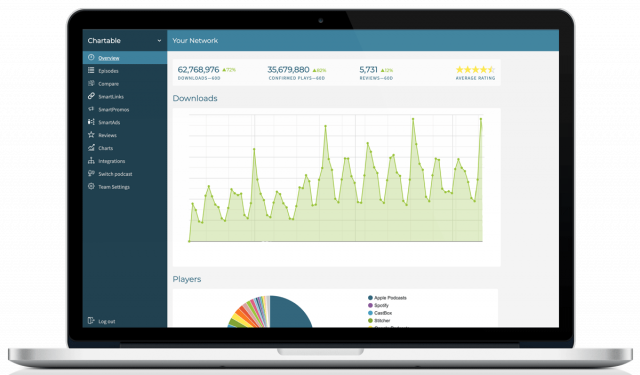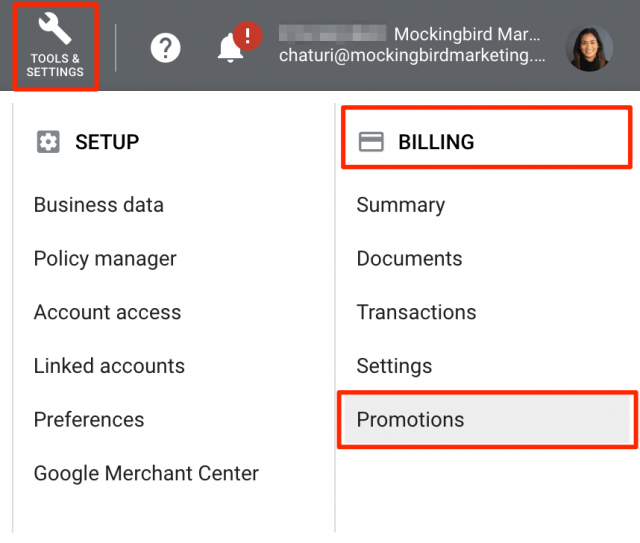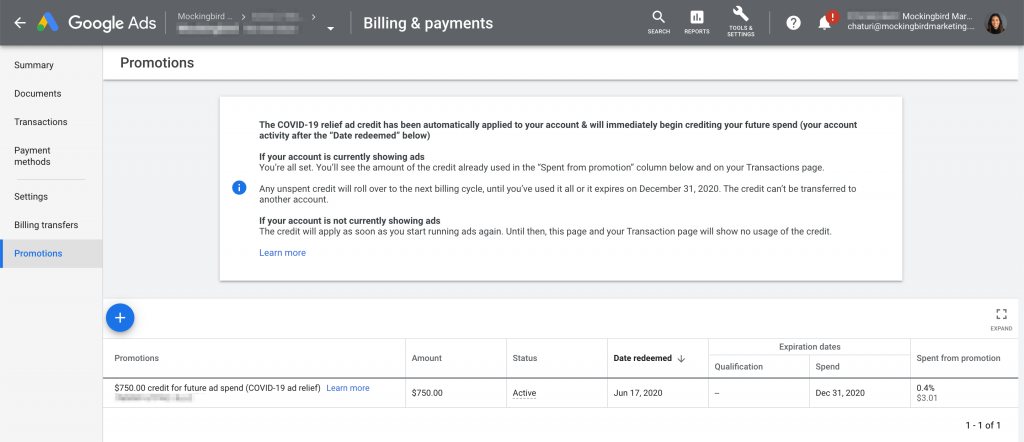Webinar Wednesday: Conrad Saam in Conversation with VP of Services Christian Swanson about Advertising. Webinar recorded on Wednesday, January 19th
Join the newsletter to be notified of webinars, podcast episodes, and much more!
Webinar Wednesday: Conrad Saam in Conversation with VP of Services Christian Swanson about Advertising. Webinar recorded on Wednesday, January 19th
Join the newsletter to be notified of webinars, podcast episodes, and much more!
During the NHL All Star game game, we saw an advertisement for Adam Kutner on the Zamboni. Its a classic law firm advertisement – in fact, it’s not that bad – uncluttered, simple call to action (the website), clear branding “Adam S. Kutner” and the classic middle aged white guy in a dark suit. But it’s not exceptional. It doesn’t stand out. It doesn’t make the captive viewing audience think anything other than, “oh, yet another dude chasing car accidents.”

My overly aggressive right-brain asked, “why isn’t this a slip and fall ad – playing off the ice theme”?
There’s a fundamental difference between generating brand awareness (which this wrap of the Zamboni does as adequately as most other lawyer advertising) and creating a brand (or brand experience) that resonates and is memorable to your prospective audience. Put differently, there’s nothing clever, unique or memorable that makes Adam stand out – his picture and name are synonymous with the expected lawyer motif. (And, let’s ignore the fact that the Golden Knight’s lance, cleverly affixed to the Zamboni, appears to perfectly skewer Adam’s right temple.)
And I’m not picking on Adam specifically, I’m picking on the legal marketing industry that churns out banal, interchangeable imagery, “creative” and branding that does nothing to distinguish the lawyers that we serve. Lawyers are trained to be risk averse by nature and the easy, obvious approach to advertising generates a frankly unmemorable result of “last name and last name” + man (and increasingly woman) in suit. Branding and positioning standouts like Byron Brown, the anti-lawyer, lawyer or Luhrsen Goldberg, law powered by women or Hello Divorce, the DIY assist, are fewer and further between than you’d expect from an industry obsessed with marketing.
But back to Adam… yeah the guy is shelling out some coin to be tied to the Golden Knights. How do leverage that money to get the Las Vegas audience to demonstrate that he’s genuinely and deeply involved in the community beyond buying a wrap for the Zamboni? If his agency were to put on the creative hat…
I don’t know Adam from, well, Adam; and perhaps he has no genuine interest in hockey and just views this as yet another marketing billboard, in which case, the ideas above are going to be much more difficult to pull off. But the campaign could be so much more effective if it went beyond the traditional, expected and unmemorable positioning and imbued his marketing with some cleverness and deeper community involvement.
82% of podcasts fail.
If you are thinking about starting a podcast to market your law practice, stop. Don’t do it. And stop listening to marketers who don’t know what it takes to not only produce but to start and grow a successful podcast. Let’s face it – if you are reading this post, you also probably have no clue what it takes to really make a podcast successful.
I’m certainly not saying podcasts aren’t an effective marketing mechanism – along with co-host, Gyi Tskakalakis, I podcast bimonthly at Lunch Hour Legal Marketing. It gives me a great opportunity to talk to a dedicated, engaged, regular audience; showcase my deep understanding of digital marketing, and display my rough-around-the-edges, no-bullshit personality in a way that most standard marketing can’t. That’s a huge value. But I also know that Lunch Hour Legal Marketing’s success in podcasting has come at a large investment in time, consistency, money, audio expertise, and leveraged social media equity. And it’s the latter elements of podcasting that are so easily glossed over by naively optimistic legal marketers who jump on the podcast bandwagon because they listen to Pod Save America on their commute. The same experts who jumped on “content is king”, multiple domains, .law TLDs, meerkat, and Clubhouse. The truth is, podcasting success is often pitched by marketers who don’t understand the Field of Dreams content marketing fallacy: build it and they will come. Write the blog and they will come. Shoot the video and they will come. Tik the Tok and they will come. And now… record the podcast and they will come.
If I haven’t dissuaded or insulted you yet, please read on to see some of the pitfalls of podcasting along with some recommendations of what it takes to make a podcast successful…
The fundamental problem with podcasts is there are lots of them. Lots and lots. And the growth in podcasts has far outpaced the growth in ears listening to podcasts. This isn’t a new marketing phenomenon; way back in 2015 a prescient writer at Wired published this post: If Podcasts Are the New Blogs, Enjoy the Golden Age While It Lasts – the key element in this headline being “While It Lasts”. Perhaps the entire perspective on my post is summed up in the Wired subheadline:
“Podcasts hold the promise of a great new democratized medium. But how many blogs do you read now?”
Indeed most people aren’t consuming more and more blog content, but does that hold true for each podcast episode (spoiler alert – it does). While the number of podcast subscribers has steadily increased – with more than 30% of the US population listening to podcasts monthly, there are now over 2 million podcasts with over 48 million episodes. Supply went on a date with Demand and the result is not in your freshman personal injury blog podcast’s favor. ListenNotes (a podcast search engine) reports over 10K podcasts covering law – sure, some of them might be about “murphy’s law” or “laws of attraction” but there’s over 2,500 titled Lawyer. You really sure you want to be #2,501? So while the Field of Dreams theory worked for Kevin Costner, it doesn’t really work for content on the internet (and never has).
The practice of Content Marketing is really missing the point. Content Marketing should really be called Marketing Content – because the emphasis (of your time, money, effort, human capital) should be focused on the marketing side of it, yet almost all lawyers and most marketers focus exclusively on the tangible, fun Content part. (It’s especially convenient for lazy agencies who pass the effort on to their legal clients but fail to push their role – the Marketing part…. “yeah yeah yeah, just keep up with that content creation thing and eventually….”) A very blunt and unscientific rule of thumb for Content Marketing is 20/80 – i.e. you should spend four times as much effort (time and/or money) on marketing the content as you spend on creating it. Now consider recording a half-hour podcast; you spend a bare minimum of 30 minutes on post production and distribution. Are you really up for putting in the additional 4 hours of hard work needed to market it? Probably not.
While there is much coverage about the explosion of podcasts and podcast listenership, very little has been written or analyzed about podcast failure. In an interview with Amplifi Media, Blubrry (a podcasting tool) CEO, Todd Cochrane notes that just 18% of podcasts added new content in the past three months. Deeper analysis shows that more than half of all podcasts are abandoned within a year of launch. Put another way, your marriage is more likely to succeed than your podcast. How’s that for a downer on way too many levels?
 So in order to avoid becoming a podcasting statistic…. don’t underestimate the effort required in building a regular listenership of subscribers eagerly anticipating your next audio wisdom drop on Apple Podcasts. Driving listeners requires much more than amazing, engaging content (yeah – you heard that from an SEO dude). It requires a turning of the marketing flywheel – essentially a lot of hard work to build to a level of self-sustaining audience growth where your listeners drive more listeners and your download success keeps you at the top of the podcast recommendation engines. Trending podcast anyone? (And yup…. here’s an entirely new algorithm optimization science to learn). Sure, if you have an existing, loyal, engaged social profile you can add podcasts to the panoply of content delivered to your audience. But if you don’t, it’s time to start advertising, promoting, cross podcasting, writing, and rewriting titles and descriptions. Time to learn the vagaries of an entirely new marketing channel – how to optimize each episode across numerous podcasting platforms. Learn new KPI’s, master new software, and invest in new tools Veritronic, Podtrac, Chartable.
So in order to avoid becoming a podcasting statistic…. don’t underestimate the effort required in building a regular listenership of subscribers eagerly anticipating your next audio wisdom drop on Apple Podcasts. Driving listeners requires much more than amazing, engaging content (yeah – you heard that from an SEO dude). It requires a turning of the marketing flywheel – essentially a lot of hard work to build to a level of self-sustaining audience growth where your listeners drive more listeners and your download success keeps you at the top of the podcast recommendation engines. Trending podcast anyone? (And yup…. here’s an entirely new algorithm optimization science to learn). Sure, if you have an existing, loyal, engaged social profile you can add podcasts to the panoply of content delivered to your audience. But if you don’t, it’s time to start advertising, promoting, cross podcasting, writing, and rewriting titles and descriptions. Time to learn the vagaries of an entirely new marketing channel – how to optimize each episode across numerous podcasting platforms. Learn new KPI’s, master new software, and invest in new tools Veritronic, Podtrac, Chartable.
And don’t forget, while you are marketing that podcast…. that is resources and brain space you aren’t using to directly market your firm.
Let’s go back to the Wired headline: “Enjoy the Golden Age While It Lasts”. Marketing your podcast today is MUCH more difficult than it was 5 years (or even 5 months) ago. Just like early adopter blogs, which had a unique advantage in building readership, early podcasts have established their audience and this gives them an unfair advantage of commanding the downloads and ears of your potential podcast audience. Read another way: switching loyal listeners from an established podcast to a new one is difficult and with over 2,000 new podcasts being introduced every week, the math is stacked against you. The first-mover advantage is very real in both blogs and podcasting. Remember that flywheel analogy earlier? That flywheel is much much heavier today than it was historically. If you are considering starting a podcast today, that first-mover advantage is so far in the rear-view mirror that you have an uphill battle to climb.
Sorry bloggers and now podcasters – most of your pertinent legal content is not the stuff of podcast success. “10 Things to Do after you receive a traffic ticket in Minneapolis.” Bleh. I’d rather listen to 10th-grade trigonometry class over Zoom from a bored, underpaid, and under-appreciated teacher. This is further complicated by the temporal nature of podcasts colliding with the evergreen nature of the majority of high converting legal content – i.e. what’s the latest and greatest new information about probate? You may work in a practice area that is more newsworthy and coverable – changes in tax law for example (yawn), but by and large those high converting head terms “car accident lawyer San Diego” really aren’t podcast worthy.
So your dull law firm content must be malleable. The challenge becomes reframing your criminal defense law firm podcast into a more interesting, pertinent, timely, consumer-friendly focus – covering the budding marijuana industry in St. Louis, for example. Or your family law practice into a podcast on celebrity divorces. Or move away from law entirely and talk about your community – your PI law firm’s podcast talks about favorite restaurants in Rhode Island – the Providence Pizza Podcast. But ultimately, given the general nature of law firms, you almost certainly need to spin, shift, pivot, reframe, or otherwise do something to dress up your dull law firm content.
It seems like every latest marketing shiny object includes the promise of “improving your SEO”. The push by marketers and agencies towards podcasts is almost comical… a recent marketing expert extolling the SEO virtues of podcasts for lawyers included this gem:
The potential for high SEO value is one of the added benefits of producing a podcast. Your law firm can advance its marketing goals with a podcast that is rich in relevant keywords and phrases, backlinks, social mentions and shareable content.
A podcast rich in relevant keywords…. rich in backlinks? Backlinks? Can someone please explain the HTML code one uses to insert a link into an audio file? And haven’t we put to bed the “social mentions as an SEO ranking factor” theory? It’s not that great podcasts can’t generate links – guest podcasting can drive links to bio pages, episodes that are featured (and marketed) on your own site may drive links, show notes with links, etc., just don’t forget that the vast majority of podcasts are syndicated and most podcasts earned links will go to those syndication sources instead of your law firm website. For more on Podcasting and real Linkbuilding try: How to Use Podcasts for Linkbuilding, but my meta point remains – the “record a podcast and SEO will magically happen” is a far-fetched Field of Dreams. And yes, I’m still waiting for that link.
Actually, recording and post-producing a podcast requires a special talent, background, and experience. Read differently: while amateur video may lend an air of personality and accessibility to a lawyer, a poorly produced podcast is… just frankly hard to listen to. And this gets increasingly complicated when you include more than one person on a podcast; matching audio volumes and different recording software is far from straightforward. Additionally, podcasts invariably require post-production from multiple takes due to verbal fumbles, missed talking points, and if you are like me, removing the occasional spontaneous f-bomb. Our Lunch Hour Legal Marketing podcast has an amazing professional recording and production crew who handles all of this, headaches we don’t have to worry about; but you do.
I’m not suggesting podcasts don’t work… just that most people who are mulling, “should I start a podcast” have very little insight into the time, effort, and money required to make them successful. So… if your agency is pushing you to podcast, ask them what the KPIs are, how they configure GarageBand, how to promote a loyal readership, what tools you need, how to generate appealing content, and exactly what it takes to get an episode trending. I’m not saying it’s impossible, I’m just saying it’s much harder than the marketing experts you’ve been listening to realize.
82% of all podcasts fail – and most of them have more innate consumer-centric appeal than your Atlanta Criminal Defense Law Firm Podcast. And if I still haven’t convinced you… tune in tomorrow for a post from the producer of my podcast, Lunch Hour Legal Marketing he showcases what it takes to generate an amazing podcast. (Don’t know what a plosive is?…. tune in tomorrow to find out.).
Your social feeds are probably crammed with ads from legal internet marketing “experts” that use FOMO to sell. They are also full of empty promises. But let me start with the punchline: legal marketing isn’t easy. Success requires hard work, significant investments, a touch of luck and a well oiled intake machine.
The formula for these ads is very simple:
This type of adverting pulls on the base psychological premise: fear of missing out (FOMO). “You are missing out on easy money your competitors enjoy because you don’t know my simple secrets.” And if you see these messages enough, subconsciously the messaging enters your brain and becomes part of your internal dialogue. Think this doesn’t work? Just go back to the last election season to see the ease of manipulating reality through highly targeted, and scientifically optimized messaging. Or read more on FOMO marketing here. These ads are scientifically designed to get you to click through, perhaps submit your email address…turning you into another line item in a marketer’s database.
But the truth is, it’s hard. There aren’t simple steps, there’s no easy solution, and the competition is getting worse, not better. Since I got into the internet marketing game back in 2006, I’ve never seen the market so competitive – there are more lawyers chasing SEO, bidding on keywords, faking offices, pushing out engaging video content and building fans on TikTok (hi Kelly!). If you think its simple, boy do I have an email drip campaign for you to sign up for.
Want to learn when you are being FOMO’d? I’ve pulled a few examples to help acquaint you with this genre of advertising so you recognize them when they cross your path on Facebook, Instagram, and even TV….
This one is classic – 1)secrets 2)7-figures, 3)it’s simple 4)others are doing it.
You too, can be like Eddie, quaffing oversized drinks with your girlfriend and traveling the world, if you just knew about New Technology (3D Legal Advertising!!!!) that generates more cases than SEO, PPC and Lead Gen combined! (Except of course, Eddie was never a lawyer, but don’t let those little details creep into your mind….).
And here’s a guy claiming that over 30% of his clients (that he landed with nothing more than powerpoint) have written a perfect, 5 star review. Really? Along with the ultimate sad lawyer FOMO imagery… 
In this instance, the “Big Bang” of the legal industry is just three simple steps followed by 164 other attorneys (did I mention you are missing out?)
Some more promises with an unmentioned new client AI technology that strangely didn’t even exist in 2020, but simultaneously was perfected over the past year. Math anyone?
Here you go lawyers… copy and paste our secret and get on your way to an 8 figure law firm….
UPDATE: Just got this new one…. you too could be lounging on a boat with this simple, two step strategy!
Back in March, Google announced plans to provide advertising credits to small and medium-sized businesses that have been affected by the COVID-19 pandemic. This week, Google started granting these ad credits to eligible accounts.
In order to have qualified for these credits, your Google Ads account must have met the following criteria:
You do not have to be advertising directly with Google. Firms who are advertising through a third-party partner are also eligible to receive these credits.
To see if you have received the credit, all you have to do is log into your Google Ads account. There will be a banner at the top that displays the credit amount that has been granted.

Another way to check whether you have received the credits is by accessing the Promotions section of your account. You can access it by going to Tools & Settings > Billing > Promotions.

From there, you will be able to see the amount, the date it was applied, and the amount that has been used so far.

Credit amounts will vary. The maximum amount an account can receive is $1000. These credits can be used through December 31, 2020. After that, any unused credits will be removed from your account.
View Google’s support documentation for more information about the ad credit rollout.
Endnote: and if your agency won’t give you access to any of this…chalk that up to yet another thing they don’t want you to see in what should be your account.
The massive shifts in consumer behavior combined with attorneys carefully extending their cash flow window has created a seismic shift in the economics of Google’s already competitive PPC advertising market. Mockingbird took a deep dive into the performance (carefully defined…. keep reading) of a random sample of 50 our our PPC clients to ascertain just how this has impacted the market. The net result:
A 42% increase in average cost per inquiry; although this is heavily colored by practice area and geography and individual firm strategies.
Given the massive flux in the market, it’s impossible to isolate any given variables for a truly scientific study – there are simple too many exogenous variables impacting any given campaign. In addition, Mockingbird has been very hands on during the COVID Crisis, especially with our PPC campaigns – adjusting models to (try) to fit the changing dynamics of the market along with our lawyers’ individual business reality. Some clients added campaigns to capture marketshare, others pulled back completely to preserve cash flow. Taking into account all of these moving parts, the average overall cost per inquiry across the legal advertisers who stayed in the market between February and the end of April increased by 42%. Monthly campaign budgets ranged from $700 to over $100K. We looked at the first two weeks of February as a pre-COVID benchmark and compared it to the last 14 days (ending yesterday). While we looked at a variety of different metrics the only one that really matters is cost per inquiry – and inquiries defined by a (first time) phone call, text, chat or form fill to an attorney.
In addition, for a true analysis, we pulled out branded advertising – i.e. those campaigns that bidding on the firm’s name or the name of attorneys within the firm, because these clicks and inquiries aren’t truly incremental conversions. Note this is one of the dirty tricks terrible agencies use to inflate their value…. i.e. counting an inquiry for “Attorney Bill Smith” as being as valuable as one for “truck accident lawyer Atlanta”. In addition, these branded conversions are extremely cheap and are used as metrics filler by agencies to inflate their numbers. In our study, branded campaigns generated inquiries at just over $10 per.
Oh – and if you don’t have access to your Google Ads account, you might ask yourself, “what does my agency not want me to see? are they hiding their performance? are they hiding my actual advertising spend?” You are a lawyer. Be a smart marketer too. Smart lawyers don’t let their agency hide data.
While the average advertising campaign saw cost per client numbers rise by 42%, there was an extremely wide distribution of the results – with fully 17 of the study group actually seeing a decline in cost per client data. 4 of the top 5 savers in this study were mixed firms how dropped Personal Injury entirely and retained budgets with other practice areas – so again, not a purely scientific study, but my goal here is to help our clients survive, not publish studies. Interestingly, of the top 9 advertisers who experienced the highest increase in cost per client, only two were PI – the others being in Tax, Immigration, Family and Social Security.
Surprisingly, CPC rates actually declined – prior to COVID, across all non-branded average CPCs were $15.55 and during the past two weeks, this number has actually declined to $12.80. I suspect this is attributable to some degree to the changes in makeup of practice areas (attorneys dropping expensive PI clicks) but to some extent, is also due to competitors pulling out of the market. So if CPC rates are dropping, why have costs actually increased? The answer lies in a decrease in the inquiry rate, the percentage of people who contact a lawyer after clicking on the ad. People are simply contacting lawyers 14% less frequently than they were before – which means there are more tire kickers, researchers and those that frankly are concerned about the cost of hiring a lawyer in this very uncertain economic reality.
Other thoughts:
If you’d like to dig even deeper into the data, we’re reviewing the raw data with our Mastermind group, held on Thursday afternoons. Apply to join us here: CORONA Crisis Mastermind.
Or join me and Google’s Sherri Healy next Wednesday, May 6 at 10:00 PST for a webinar. Register here: The Changing Economics of PPC in Legal.
I’ve taken over hundreds of law firms’ Google Ads accounts, and about 90% of those were set up incorrectly. This isn’t my opinion on “the right” bid strategy, or me judging an old agency’s ad copy, but a fundamental fact that the account is essentially broken.
Too many times, search campaigns have been running for months (or years) and the account FAILS the very first thing we look at. Their previous agencies boasted about delivering thousands of impressions and hundreds of clicks at such a low cost-per-click (CPC) that “it’s basically like free advertising!”

Just stop.
First of all, impressions are so inconsequential that we’ve removed that metric completely from our Google Search monthly reports. Same with CPC. Seriously. We don’t care, and you shouldn’t either.
Here’s why.
Search campaigns are designed to deliver conversions. You advertise because you want new leads. Most Google Ads accounts we’ve taken over don’t have any conversion tracking at all! Sure, your campaign generated a thousand clicks, but how did that help your business? Oh, those people might have called you? Why don’t you track, I don’t know… phone calls as conversions?

Don’t advertise without tracking what matters.
The first thing you should do before building any campaign is ask yourself what’s the point? Not in the “I give up, what’s the point of trying?” sort of way, but what’s the purpose, what are your goals, what’s important to you?
For most law firms, it’s form fills and phone calls. You need to list out all the ways people can contact your firm, as there may be more conversion paths than you originally thought:
There are a lot of ways people can contact your firm. Track them all!
SIDE NOTE: Please don’t list any email addresses on your site. 1) Google Ads can’t track who emails you, 2) your client’s should already know how to get a hold of you, and 3) you’ll get less spam from bots.
Stop looking at impressions, clicks, and CPC as metrics for success. Instead, analyze your cost-per-acquisition (CPA). Are these conversions turning into clients? Move your focus downstream.
Of course all metrics are important to some degree. As an advertiser, I am hyper focused on CTR and CVR and QS and SIS and ETC… But as a lawyer, you don’t need to know all that. You’re advertising to generate leads, and you need to know if that’s happening at a reasonable rate.
If you advertise without conversion tracking, you might as well save yourself a couple grand and cancel now.
Recently, Google announced that they will be providing $340 million in ad credits for small and medium-sized businesses that have been affected by the COVID-19 pandemic. This comes as part of their $800 million pledge toward aiding businesses and global crisis response.
These credits will be available to SMB advertisers who have been active since the beginning of 2019. This means that if you have had an existing Google Ads account since January 1, 2019, and it is active, you are eligible to receive these credits. You will not receive these credits if you create a new Google Ads account or if your account has been deactivated due to inactivity.
These credits are not immediately available. However, SMB advertisers that are eligible for credits will receive a notification in their Google Ads account in the coming months. These credits can be used anytime until the end of 2020. After that, all unused credits will be removed from the account.
View Google’s full statement and support documentation about the ad credits initiative for more information.
There’s no doubt about it, we’re all having to change our daily routines because of COVID-19. Many law firms are finding themselves with more downtime than they’re used to, and that can be very scary as a small business owner.
We’ve been talking to our clients a lot lately about whether they should be pausing all advertising, switching focus on their current marketing projects, and even helping them learn new tools and technology to help them work remotely.
Since no one knows when things will start going back to normal, here’s a list of things you, as an attorney or an employee at a law firm, can do to help your business for the long-haul:
Even though things are uncertain at the moment, you can use this time to do all the things you never had time to do before, and set yourself up for success once everything blows over.
If you’re interested in getting an experts opinion on how you should be handling your law firm’s business and marketing, give us a call.